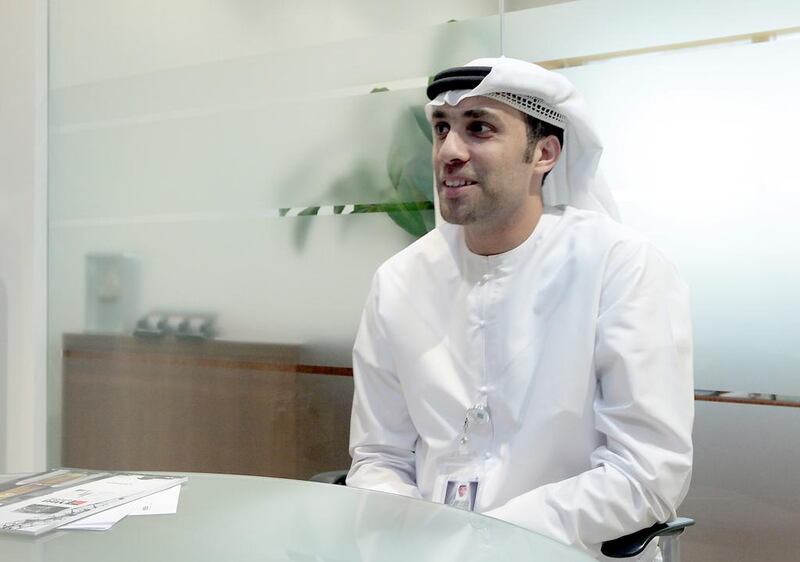ABU DHABI // Youngsters entering the Genes in Space contest were reminded that they could play a pivotal role in the start of the UAE’s golden age of space.
Offering high-school pupils the chance to see their experiments launched into space is a good example of the ample opportunities available to youngsters in the space industry, said Salem Al Marri, assistant director-general of scientific and technology affairs at Mohammed bin Rashid Space Centre.
“Students are lucky to have so many opportunities in the field today and they need to take advantage of them,” Mr Al Marri said.
Since the launch of the competition 12 weeks ago, pupils have been working on producing and fine tuning concepts for a DNA analysis experiment that take advantage of the low-gravity environment in space.
With the prize of travelling to the US and watching their winning idea launched to the International Space Station, pupils have been scrutinising their proposals during the final days before Thursday’s deadline.
Umar Moiz, 18, is entering the competition in a group of four pupils from Cambridge High School in Abu Dhabi.
The Singaporean said his role in the group was to act as a critic of the other members’ proposals for experiments.
“Initially [the idea] was all over the place. No matter how much I liked the idea I had to be realistic,” said the Cambridge senior.
Umar said discrediting his teams’ ideas was not easy, but that they had to make sure the experiment was as error free as possible.
The team finally elected to focus on the possible effect of a low-gravity environment on the mental health of astronauts through genetic mutation.
Although not easy, Umar said the experience had helped him to grow in numerous ways.
An aspiring robotics engineer, Umar said the contest had assisted him in many of his classes, including biology, chemistry, physics and maths.
“It was quite thought provoking and helped me to develop an interest in space. I am now thinking about how to extend the human lifespan so we can travel farther into space.”
Another valuable lesson he was able to learn was how to productively work in a group.
“We all learnt to trust each other and if anyone had a weakness we would compensate for the other.”
Once the Genes in Space deadline has passed the next phase will be to announce the finalists, which will take place at the Global Aerospace Summit on March 7 and 8 in Abu Dhabi.
These finalists will then have their experiments tweaked, scrutinised and enhanced by mentors, including scientists and specialists from Khalifa University and the Massachusetts Institute of Technology.
“This is not the kind of opportunity you get every day here and I was very excited about this unique chance,” Umar said.
Mr Al Marri said such programmes inspired youngsters at an impressionable age.
"The earlier you motivate them, the better. If you grab the attention of young students and you can push them, then you've got them interested for life," he said. The deadline for entries to the competition, which is open to pupils in Grades 7 to 12, is at midnight tonight, with more information on genesinspace.org.
To find out more and get involved follow #theuaespacestory on social media.
talsubaihi@thenational.ae






